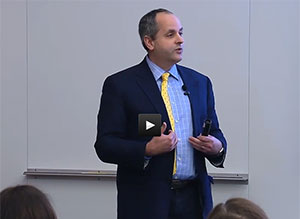Continuing our efforts to help modernize graduate education, we sought input from the community through a Request for Information (RFI) on strategies to enhance our physician-scientist training grants to medical schools across the country. These grants, funded through the Ruth L. Kirschstein Institutional Predoctoral Training Grant (T32) Medical Scientist Training Program (MSTP), provide M.D.-Ph.D. dual degree students with an integrated program of biomedical sciences and clinical training. The RFI was open from June 9 to August 9, 2017. There were 16 themes in the RFI that were broadly binned into the following categories:
- Trainees (e.g., time of recruitment to the MSTP, diversity of the applicant pool, and selection criteria)
- Financing/funding (e.g., how different M.D.-Ph.D. funding models influence the range of institutions that apply for MSTP support, the pool of trainees, and the trainees’ commitment to research careers)
- Dual-degree training (e.g., time-to-degree, integration of curriculum, training areas, mentoring, and career advising)
- NIGMS management of MSTP grants (e.g., size, number, and distribution of training programs; evaluation of outcomes; and peer review)



 Registration is now open for the 2014 Postdoctoral Preparation Institute: Career Transitions, a workshop we’re funding for postdoctoral fellows who will soon be seeking positions in a variety of career sectors. The workshop, which is being run by FASEB, will take place near NIH on June 5-6. It follows two successful prior NIGMS postdoc workshops in 2010 and 2012.
Registration is now open for the 2014 Postdoctoral Preparation Institute: Career Transitions, a workshop we’re funding for postdoctoral fellows who will soon be seeking positions in a variety of career sectors. The workshop, which is being run by FASEB, will take place near NIH on June 5-6. It follows two successful prior NIGMS postdoc workshops in 2010 and 2012.